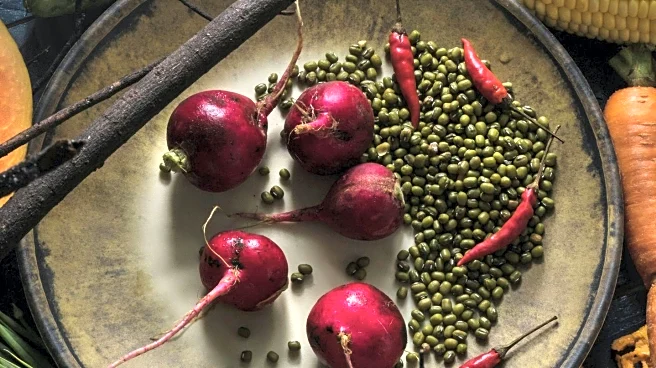What's Happening?
A-dae Romero-Briones, Vice President of Policy & Research at the First Nations Development Institute, emphasizes the importance of Indigenous food systems in building just food systems. Speaking at various forums, she highlights the need to integrate Indigenous knowledge and practices into modern food systems. Romero-Briones argues that Indigenous foodways are not just historical but are vital for future food security and sustainability. The discussion also touches on the role of technology in food systems, with Riana Lynn of Journey Foods advocating for smarter, sustainable solutions in food supply chains.
Why It's Important?
The integration of Indigenous food systems into broader food security strategies is crucial for sustainability and resilience. These systems offer valuable insights into sustainable agriculture and community health, which are increasingly important in the face of climate change and global food challenges. The emphasis on Indigenous people, rather than just practices, underscores the need for inclusive and equitable food policies. The role of technology, as highlighted by Riana Lynn, points to the potential for innovation in creating sustainable and just food systems.
What's Next?
Upcoming events like Climate Week NYC and the U.N. General Assembly will provide platforms for further discussions on integrating Indigenous food systems into global food policies. These discussions are expected to influence future food security strategies and policies. The focus will likely remain on ensuring that Indigenous voices are included in these conversations, and that their knowledge is leveraged to address global food challenges.









